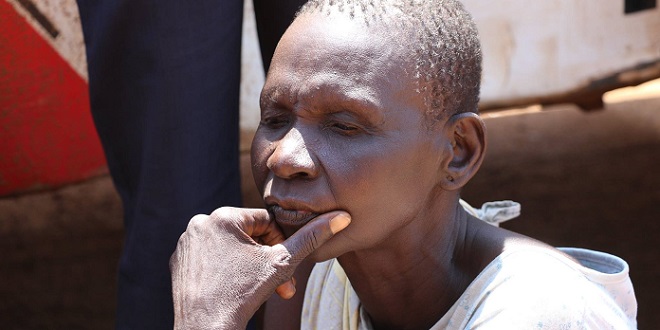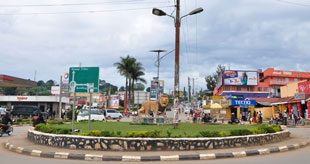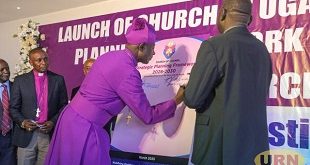
Yumbe, Uganda | AFP |
South Sudanese refugees in Uganda have described being forced to flee soaring ethnic violence at the hands of the South Sudanese army while avoiding forced conscription into rebel forces.
Hundreds of thousands of people have fled the world’s newest country since renewed fighting broke out in the South Sudanese capital in July following the collapse of a peace deal between the government and rebel forces.
In the western town of Yei, units of South Sudan’s army are using machetes to kill people accused of joining armed rebel groups, according to those who have recently fled the region.
“About two weeks ago, soldiers came to my brother Emmanuel’s house at night and demanded that he open the door,” said Abraham Aloro, a 20-year-old from a former tobacco plantation about two miles from Yei.
The town, which is 50 kilometres (30 miles) from the Ugandan border, has been a flashpoint for clashes between forces loyal to President Salva Kiir and those of his former vice-president, ex-rebel Riek Machar, who is now in exile.
“They accused him of joining the rebels,” said Aloro. “He hadn’t but they cut him to death with pangas (machetes). We found his body in the morning. He was 24.
“I ran with five friends. We were so scared. We had to take shortcuts because the government soldiers are on the main roads but there are rebels in the bush.”
Aloro then made it to Kuluba Refugee Transit Centre in northern Uganda, about seven kilometres from the South Sudan border.
On average, around 2,400 new refugees arrive in Uganda from South Sudan daily, fleeing political violence that followed the collapse of a peace deal between Kiir and Machar inked in August last year that had raised hopes of peace. Some 330,000 have arrived so far this year.
From Kuluba, refugees are taken to Bidibidi Settlement where they receive essential supplies and land on which they can cultivate crops and build a shelter.
But Aloro, who is from the Kakwa tribe, is concerned about continuing ethnic tensions in the settlement.
“The SPLA (government) soldiers are Dinka and we don’t like to be with them. They are the very people who caused the problems. They will come and kill you while you are sleeping,” he said.
Robert Baryamwesiga, the top Ugandan government official in Bidibidi, accepts there is a risk of ethnic tensions spilling over into the camp.
‘Slaughter you with a knife’
“There’s a lot of resentment between the other tribes and Dinka. They say that the Dinka are the ones who chased them out of their country… but we are quick to sensitise them to explain that Dinkas are equally vulnerable,” he said.
“Once they are in Uganda the tribal conflicts are very minimal.”
Sarah Kakuni, from the Pojulu ethnic group, fled South Sudan along with her two young daughters. Sitting in a communal tent in Bidibidi Settlement on a mat that the UN refugee agency had just given her, she described what life was like in Nyombwe, on the outskirts of Yei, before she fled.
“During the night you can hear shooting in town,” she said.
“When it stops, that’s when they’re slaughtering people with knives and pangas… Dinkas will open your door and kill you if you don’t have their tribal scars,” said the young mother, referring to the distinctive triple parallel lines many Dinka men have on their forehead.
Other refugees described how dissident fighters forcibly recruited them into their ranks.
Lino Rosa from Morobo county said that he was forced to fight alongside the rebels.
“They caught me and I stayed with them for one month… If you refuse they will slaughter you with a knife,” said the 26-year-old as he drew his finger across his throat.
“On 28 September they went to attack somewhere at night. I was able to sneak away. I threw down my gun and ran back to Morobo. I got my wife and children and we went to Congo,” said the father of three, who hails from the Kaliko tribe.
He then took an arduous, indirect route alone to Uganda where he joined 530,000 South Sudanese refugees already there.
“When I get more money I will go and get them,” he said of his family.
 The Independent Uganda: You get the Truth we Pay the Price
The Independent Uganda: You get the Truth we Pay the Price



